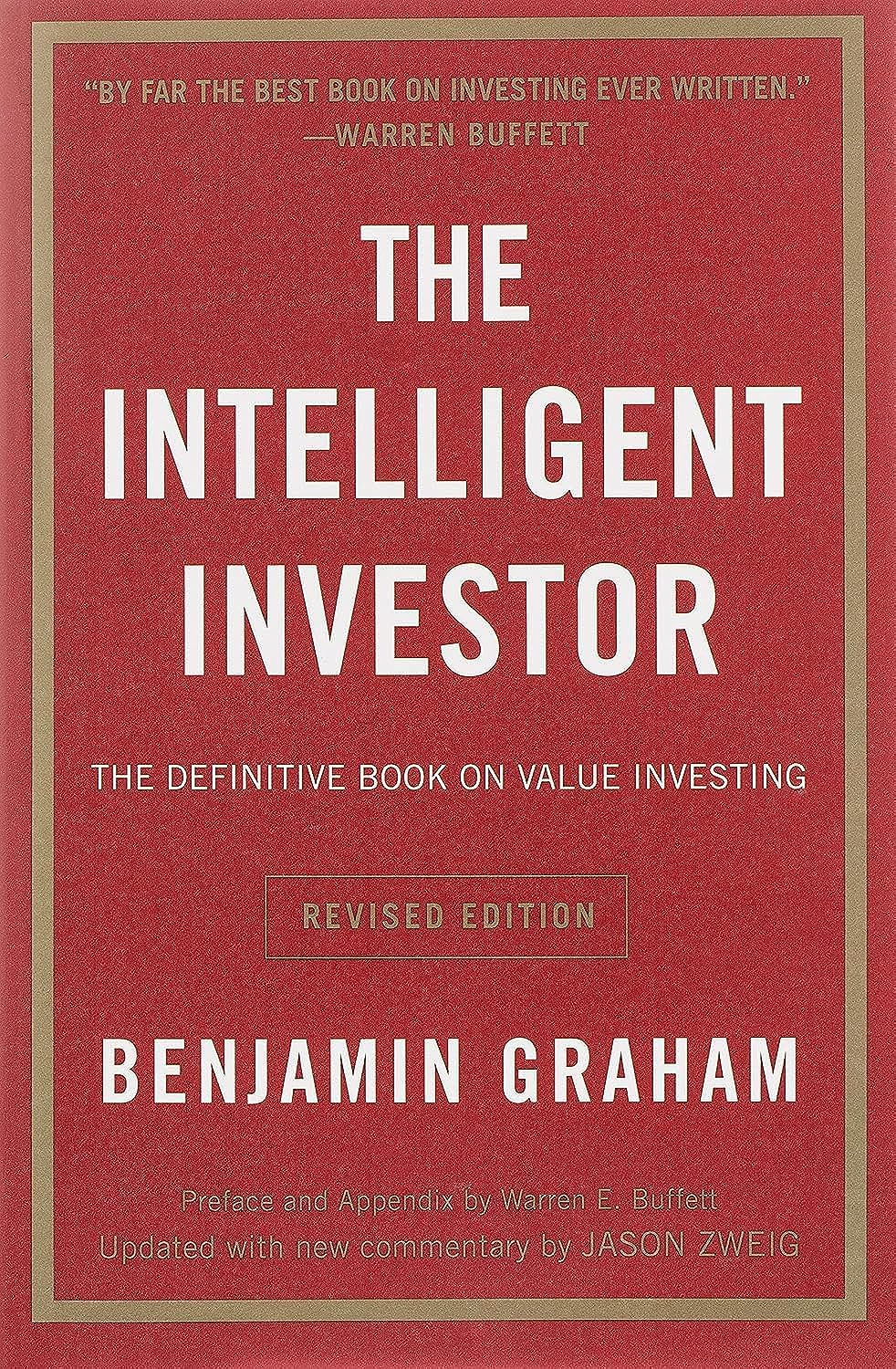“Updated October 2025 – Added new data and recommendations.”

Disclosure: This post may contain affiliate links. We may earn a commission if you sign up through our links, at no extra cost to you.
Introduction
Finding the best investing books in 2025 can feel overwhelming, but starting with the right ones can save you years of mistakes. Everywhere you look, TikTok, YouTube, Instagram, blogs, someone is trying to sell you a secret strategy, a course, or a “can’t miss” stock pick. The problem? Most of it is noise, and as a beginner, it’s almost impossible to figure out what’s real and what’s just hype.
When I first became interested in investing, I did what most people do: scrolled endlessly, watched videos late at night, and tried to piece together advice from strangers online. It left me more confused than before. What finally gave me clarity wasn’t a video or a guru, it was books.
Books have something the internet doesn’t: structure, depth, and timeless wisdom. Instead of chasing trends, you get principles that last decades. And the best part? You don’t need to read 20 books. If you just start with the five below, you’ll already know more than 90% of new investors.
These aren’t random picks — they’ve shaped millions of investors, from complete beginners to billionaires. If you’re in Canada or anywhere else, these are the books I’d put on your desk first.
Also read Best Investing Apps in Canada 2025
1. The Intelligent Investor — Benjamin Graham
This isn’t light reading. It’s dense, it’s old-school, and honestly, it’s a bit intimidating at first glance. But it’s also the single most influential investing book ever written. Warren Buffett calls it “the best investing book ever written,” and he built his fortune on the principles inside.
At the core, Graham teaches value investing, the art of buying businesses for less than they’re worth and holding them for the long term. He also introduced the concept of Mr. Market, a metaphor that describes the stock market as an emotional partner who swings between optimism and fear. Your job as an investor? Stay calm, buy when prices are attractive, and ignore Mr. Market’s mood swings.
Why this matters today: in 2025, the same psychology applies. Markets go up and down, social media hypes the next big thing, but Graham’s lessons about discipline and patience never change. Even if you don’t read it cover to cover, the mindset you’ll get from this book will stay with you forever.
📌 Best for: Beginners who want to understand the principles that still guide the world’s best investors.
2. The Little Book of Common Sense Investing — John C. Bogle
If The Intelligent Investor feels heavy, this book is the perfect counterbalance. John Bogle, founder of Vanguard, revolutionized investing by creating index funds, a simple way to own the entire market instead of trying to beat it.
The message is simple: most investors fail because they chase returns, overtrade, or pay high fees. Instead, just buy the whole market through an index fund, keep costs low, and let compounding do the work.
For Canadians, this message is even more powerful. Thanks to ETFs (exchange-traded funds), anyone with a Wealthsimple or Questrade account can follow Bogle’s strategy with just a few clicks. Instead of worrying about picking the “right” stock, you can buy an entire basket of companies and grow steadily over decades.
This is probably the easiest investing book to read and understand, and it could save you from years of costly mistakes.
📌 Best for: Anyone who wants a no-stress, proven way to build wealth without constant research.
3. Rich Dad Poor Dad — Robert Kiyosaki
This one isn’t a technical investing book. It’s a mindset book , and that’s exactly why it belongs here. Kiyosaki contrasts the advice he received from two father figures: one who was financially struggling (poor dad) and one who built wealth (rich dad).
The main lesson: wealthy people don’t just work for money; they make money work for them. Kiyosaki introduces simple but powerful ideas like assets vs. liabilities, and the importance of financial literacy.
Now, is it perfect? No. Some of his advice is controversial, and not all of it applies directly to investing. But it’s one of those books that flips a switch in your brain. Many readers walk away realizing they’ve been taught to think about money in a way that keeps them stuck. This book breaks that pattern.
📌 Best for: Absolute beginners who need to change their mindset about money before diving into strategies.
4. Millionaire Teacher — Andrew Hallam
This one’s a gem, especially for Canadians. Andrew Hallam was a schoolteacher who quietly built wealth while earning an average salary. His book proves that you don’t need to be rich to retire wealthy, you just need to understand how to save, invest in index funds, and avoid unnecessary fees.
Hallam’s style is funny, down-to-earth, and relatable. He explains financial concepts without jargon and uses personal stories to show that investing isn’t just for Wall Street professionals.
What makes it extra valuable for Canadians: he actually explains how to use accounts like RRSPs and TFSAs within his strategies. It’s rare to find an investing book that speaks directly to the Canadian market, and that makes this a must-read if you live here.
📌 Best for: Canadians (or anyone earning a regular income) who want simple, relatable strategies that actually work.
5. The Psychology of Money — Morgan Housel
You can know all the math, strategies, and theory in the world, but if you panic every time the market drops, none of it will matter. This is where Morgan Housel’s book shines.
Through 20 short stories, Housel explains why human behavior is often the biggest factor in financial success. It’s not about spreadsheets, it’s about patience, consistency, and perspective.
One of the best parts is his reminder that “doing well with money has little to do with how smart you are and a lot to do with how you behave.” He gives real examples
of people who made or lost fortunes not because of intelligence, but because of decisions driven by fear or greed.
In 2020, many investors panic-sold when markets dropped, only to miss the recovery. In 2021, many others bought into hype stocks at the top and lost big. These stories happen every decade, and Housel’s book helps you avoid being part of them.
📌 Best for: Anyone who wants to master the emotional side of money.
Which Book Should You Start With?
You don’t need to read all five at once. Pick one based on where you’re at:
- If you want a clear step-by-step strategy → start with The Little Book of Common Sense Investing by Bogle.
- If you want a mindset shift → start with Rich Dad Poor Dad.
- If you’re Canadian and want practical examples → start with Millionaire Teacher.
- If you want timeless wisdom (and don’t mind a challenge) → go with The Intelligent Investor.
- If you want something easy but powerful → start with The Psychology of Money.
No matter where you begin, each of these books will give you a piece of the puzzle.
Conclusion
Building wealth isn’t about chasing trends or guessing which stock will double next year. It’s about building a strong foundation, keeping your costs low, and avoiding the emotional traps that ruin most investors.
These five books are more than just reading material — they’re a roadmap. They’ve stood the test of time because the principles inside actually work.
So here’s your challenge: pick one book today, order it, and commit to reading it this month. By the time you’re done, you’ll already be miles ahead of most people scrolling through TikTok “money hacks.”
Reading even one of these from our list of the best investing books 2025 will put you ahead of most new investors.
And if you want ongoing tips and tools tailored for Canadians, join The Maple Mentor Newsletter, every week I’ll send you practical investing advice you can actually use.
Read more about me here





